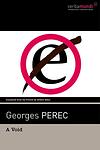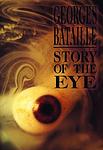The Greatest French, Irish "Fiction, Experimental" Books Since 1910
Click to learn how this list is calculated.
This list represents a comprehensive and trusted collection of the greatest books. Developed through a specialized algorithm, it brings together 305 'best of' book lists to form a definitive guide to the world's most acclaimed books. For those interested in how these books are chosen, additional details can be found on the rankings page.
Genres
The "Experimental" category of books is characterized by works that challenge traditional literary conventions and push the boundaries of form and content. These books often incorporate unconventional narrative structures, language, and themes, and may experiment with different mediums such as poetry, visual art, or multimedia. The goal of experimental literature is to create new and innovative ways of storytelling that challenge readers' expectations and expand the possibilities of what literature can be.
Countries
Date Range
Reading Statistics
Click the button below to see how many of these books you've read!
Download
If you're interested in downloading this list as a CSV file for use in a spreadsheet application, you can easily do so by clicking the button below. Please note that to ensure a manageable file size and faster download, the CSV will include details for only the first 500 books.
Download-
1. Ulysses by James Joyce
Set in Dublin, the novel follows a day in the life of Leopold Bloom, an advertising salesman, as he navigates the city. The narrative, heavily influenced by Homer's Odyssey, explores themes of identity, heroism, and the complexities of everyday life. It is renowned for its stream-of-consciousness style and complex structure, making it a challenging but rewarding read.
The 3rd Greatest Book of All Time -
2. Waiting for Godot by Samuel Beckett
"Waiting for Godot" is a play that explores themes of existentialism, despair, and the human condition through the story of two characters, Vladimir and Estragon, who wait endlessly for a man named Godot, who never arrives. While they wait, they engage in a variety of discussions and encounter three other characters. The play is characterized by its minimalistic setting and lack of a traditional plot, leaving much to interpretation.
The 96th Greatest Book of All Time -
3. Journey to the End of The Night by Louis-Ferdinand Céline
The novel is a semi-autobiographical work that explores the harsh realities of life through the cynical and disillusioned eyes of the protagonist. The narrative follows his experiences from the trenches of World War I, through the African jungles, to the streets of America and the slums of Paris, showcasing the horrors of war, colonialism, and the dark side of human nature. The protagonist's journey is marked by his struggle with despair, loneliness, and the absurdity of existence, offering a bleak yet profound commentary on the human condition.
The 124th Greatest Book of All Time -
4. Molloy by Samuel Beckett
"Molloy" is a complex and enigmatic novel that follows the journey of its eponymous character, an elderly, disabled vagabond, who is tasked with finding and killing a certain person. The narrative is split into two parts: the first is told from Molloy's perspective as he navigates his way through a strange and often hostile world, while the second follows a detective named Moran who is assigned to find Molloy. The novel is renowned for its challenging narrative structure, its bleak and absurdist humor, and its profound exploration of themes such as identity, existence, and the human condition.
The 241st Greatest Book of All Time -
5. At Swim Two-Birds by Flann O'Brien
This novel is a complex, metafictional work that weaves together three separate narratives. The first is about a lazy, hard-drinking college student living with his uncle, the second is about a devilish Pooka and a loquacious old man, and the third is about a fictional character named Finn who seeks revenge on his author for creating him poorly. The narratives eventually intersect in a unique and humorous way, challenging traditional ideas of story structure and character autonomy.
The 296th Greatest Book of All Time -
6. Finnegans Wake by James Joyce
This complex and challenging novel is renowned for its experimental style and intricate, dreamlike narrative. It explores the story of a publican in Dublin, his wife, and their three children, but the plot is not linear and often veers into surreal and abstract territory. The book is dense with linguistic games, puns, and allusions to a myriad of cultural, historical, and mythological sources. The narrative is circular, ending in the middle of a sentence that is completed at the start of the book, embodying the cyclical nature of life and history.
The 325th Greatest Book of All Time -
7. Life, a User's Manual by Georges Perec
The novel explores the lives of the inhabitants of a Parisian apartment block through a complex, multi-layered narrative. It delves into the interconnected stories of the building's residents, revealing their secrets, desires, and disappointments. The narrative is structured like a puzzle, with the author employing a variety of literary styles and devices, making it a complex and intriguing exploration of human life.
The 451st Greatest Book of All Time -
8. The Third Policeman by Flann O'Brien
"The Third Policeman" is a darkly comedic and surreal novel about a nameless narrator who, after committing a murder to raise funds for his scholarly obsession with a bizarre pseudo-scientific theory, finds himself wandering in an eerie, nightmarish landscape. He encounters strange characters, including a pair of eccentric policemen who are obsessed with bicycles, and becomes embroiled in a series of increasingly absurd and ludicrous situations. The novel explores themes of existence, reality, and the nature of hell, with a twist ending that forces the reader to question everything they've read.
The 463rd Greatest Book of All Time -
9. The Unnamable by Samuel Beckett
"The Unnamable" is a complex, stream-of-consciousness narrative that explores themes of existence, identity, and the nature of reality. The protagonist, who lacks a clear identity, is trapped in a void and continually questions his existence and reality. As he grapples with his own consciousness, he attempts to tell his story, but constantly doubts and revises it, creating a cyclical, fragmented narrative. The novel is known for its challenging, abstract prose and its exploration of existentialist themes.
The 470th Greatest Book of All Time -
10. Murphy by Samuel Beckett
The novel explores the life of the titular character, a disaffected and detached man living in London who prefers the realm of his own thoughts to the real world. After securing a job as a nurse at a mental institution, he becomes increasingly detached from reality. The narrative also delves into his relationships with various other characters, including his fiancée, his best friend and a prostitute. The book is known for its dark humor and its exploration of themes such as existentialism and the nature of human consciousness.
The 642nd Greatest Book of All Time -
11. Nadja by André Breton
The novel is a surrealistic exploration of the narrator's relationship with a young woman named Nadja. As the narrator becomes infatuated with Nadja, their encounters become more and more dreamlike. The book delves into the nature of reality and the power of the subconscious mind, blurring the lines between dreams and reality. It is also a commentary on the socio-political climate of Paris in the early 20th century, showcasing the author's views on art, life, and love.
The 758th Greatest Book of All Time -
12. Story of the Eye by Georges Bataille
This novel is a provocative exploration of the dark side of human nature, featuring two teenage characters who engage in increasingly bizarre and violent sexual games. Their actions, driven by their obsession with eroticism and death, lead them into a world of perversion and madness. The narrative is filled with explicit sexual content and shocking imagery, reflecting the author's fascination with the transgressive and the taboo.
The 999th Greatest Book of All Time -
13. Death on Credit by Louis-Ferdinand Céline
"Death on Credit" is a semi-autobiographical novel that explores the life of a young Frenchman in Paris during the early 20th century. The protagonist, a medical student from a poor family, struggles with the harsh realities of life, including poverty, sickness, and death. The narrative is marked by its dark humor, cynicism, and scathing critique of society, reflecting the author's own experiences and views. The protagonist's journey is a constant struggle against the absurdity and despair of existence, depicted through a series of episodic adventures and misadventures.
The 1067th Greatest Book of All Time -
14. Our Lady of the Flowers by Jean Genet
The novel is a dark, poetic exploration of the criminal underworld in Paris, focusing on the life and fantasies of a homosexual prostitute and thief. The protagonist, while in prison, creates an elaborate fantasy world populated by outcasts, convicts, and murderers, including a transgender character who becomes his ideal of beauty and purity. The narrative is filled with graphic depictions of sex and violence, and explores themes of transgression, identity, and the transformative power of the imagination.
The 1273rd Greatest Book of All Time -
15. Endgame by Samuel Beckett
Endgame is a one-act play that follows the lives of Hamm, a blind and unable to stand man, and Clov, his servant who cannot sit. They live in a single room, with Hamm's legless parents residing in dustbins. The characters are trapped in a cyclical existence where they constantly argue and contemplate life, death, and their own existence. The play is characterized by its minimalistic setting and bleak outlook on life, reflecting themes of existentialism and the human condition.
The 1278th Greatest Book of All Time -
16. Locus Solus by Raymond Roussel
"Locus Solus" is an avant-garde novel that revolves around the eccentric millionaire inventor, Canterel, who invites a group of guests to visit his estate, Locus Solus. Here, he displays a series of bizarre inventions, each with a detailed backstory. The inventions include a diamond-encrusted machine that constructs intricate mosaics using human teeth, a large glass cage filled with preserved human heads that reenact key moments from their lives, and a device that uses preserved body parts to perform a grotesque ballet. The narrative is heavily detailed and surreal, creating a unique and intriguing exploration of art, life, and the human condition.
The 1409th Greatest Book of All Time -
17. Watt by Samuel Beckett
The novel is a darkly comedic and absurdist exploration of the human condition. It follows the eponymous character, Watt, as he serves as a domestic servant in a bizarre, isolated household. Throughout the narrative, Watt struggles to make sense of his surroundings, the odd behavior of his master, and his own existence. The book is filled with philosophical musings, wordplay, and surreal humor, offering a unique and challenging reading experience.
The 1431st Greatest Book of All Time -
18. The Ravishing of Lol Stein by Marguerite Duras
The Ravishing of Lol Stein is a novel that explores the life of the eponymous character, who is traumatized by her fiancé's betrayal at a ball. This event leads her into a mental breakdown, after which she returns to her hometown and marries an older man. However, her life takes a turn when she becomes obsessed with a young couple, leading her to question her own sanity and reality. The book delves into themes of love, obsession, and the thin line between sanity and madness.
The 1499th Greatest Book of All Time -
19. The Bald Soprano by Eugène Ionesco
"The Bald Soprano" is a play that explores the absurdity of everyday life through a nonsensical narrative. It revolves around two middle-class English couples, the Smiths and the Martins, who engage in meaningless and repetitive conversations. The play is known for its unconventional structure, lack of plot, and the characters' surreal behavior, which are all used to satirize the banality and futility of routine and social norms. The title refers to a character who is never seen or mentioned again after the opening scene.
The 1558th Greatest Book of All Time -
20. A Void by Georges Perec
This novel is a unique and complex piece of literature, written entirely without the use of the letter 'e'. The story follows a group of individuals trying to solve the mysterious disappearance of a friend, while also dealing with their own personal struggles and existential crises. The narrative is filled with wordplay, puzzles, and allusions, and the absence of the letter 'e' serves as a metaphor for loss and absence in the characters' lives.
The 1562nd Greatest Book of All Time -
21. W, or the Memory of Childhood by Georges Perec
"W, or the Memory of Childhood" is a unique blend of autobiographical recollections and fictional narrative. The novel alternates between two storylines: one describing the childhood of a Jewish boy during World War II, and the other detailing a dystopian society on a mysterious island known as "W". The book explores themes of memory, trauma, and the loss of innocence, while also offering a critique of totalitarian regimes. The two narratives gradually converge, revealing the traumatic underpinnings of the protagonist's life and the allegorical nature of "W".
The 1743rd Greatest Book of All Time -
22. The Erasers by Alain Robbe-Grillet
The book is a complex and innovative narrative that blurs the lines between reality and imagination, following a detective who is investigating a series of connected murders in a nameless town. As the detective delves deeper into the case, the story unfolds in a non-linear fashion, challenging the reader's perception of time and causality. The novel's structure, characterized by repetitive descriptions and a lack of clear resolution, reflects the themes of uncertainty and the elusiveness of truth, ultimately questioning the nature of existence and the reliability of memory and perception.
The 1819th Greatest Book of All Time -
23. Krapp's Last Tape by Samuel Beckett
"Krapp's Last Tape" is a one-act play about an aging man who annually records a review of the past year of his life. On his 69th birthday, he listens to a tape from 30 years earlier, where he reflects on his life at 39, his lost love, and his isolation. The play explores themes of memory, regret, and the passing of time, with the protagonist's relationship with his younger self revealing a portrait of a man in decline.
The 1914th Greatest Book of All Time -
24. Blue of Noon by Georges Bataille
"Blue of Noon" is a provocative novel set in 1930s Europe during the rise of fascism. The story follows the life of an Englishman living in Paris, who is embroiled in a self-destructive cycle of sexual escapades and political extremism. His journey takes him through various European cities, where he engages in debauchery and encounters the political turmoil of the time. The book explores themes of existentialism, nihilism, and the human condition, offering a dark and complex portrayal of a man's struggle with his inner demons and the chaotic world around him.
The 1981st Greatest Book of All Time -
25. Arcanum 17 by André Breton
"Arcanum 17" is a surrealist exploration of love, loss, and resurrection set amidst the backdrop of World War II. Drawing inspiration from the legend of Melusina, the author uses the symbolism of this mythic figure to discuss the role of women in society and the destructive nature of war. The narrative also delves into themes of renewal, rebirth, and the power of the feminine, all while using the surrealist style to blend reality and dream in a poetic and philosophical discourse.
The 2443rd Greatest Book of All Time
Reading Statistics
Click the button below to see how many of these books you've read!
Download
If you're interested in downloading this list as a CSV file for use in a spreadsheet application, you can easily do so by clicking the button below. Please note that to ensure a manageable file size and faster download, the CSV will include details for only the first 500 books.
Download























